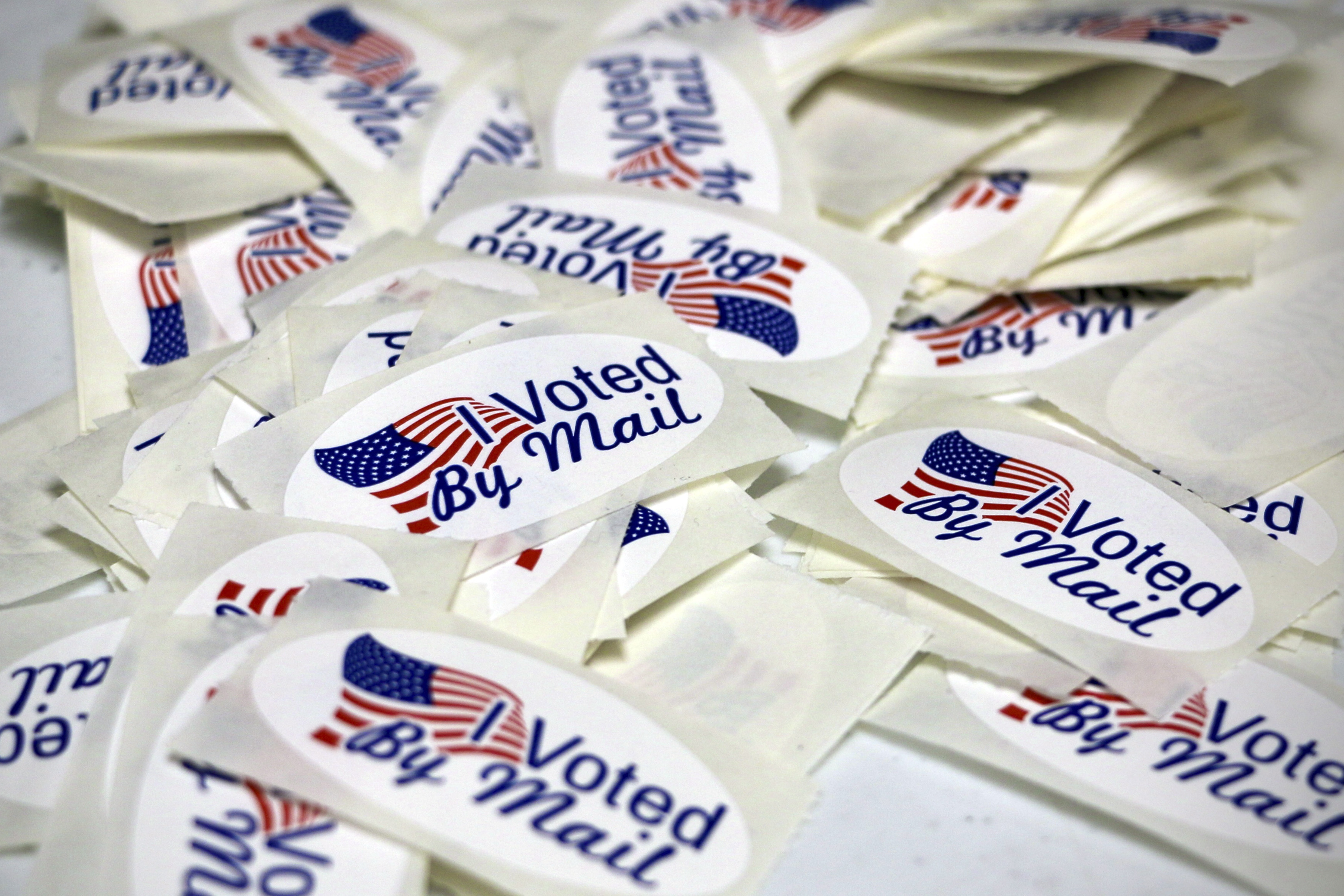Can A Convicted Felon Run For President? Exploring The Legal And Practical Realities
Let’s get straight to the point: the idea of a convicted felon running for president sounds like something out of a political drama, but is it actually possible? The short answer is yes—technically, there’s no federal law explicitly banning felons from running for the highest office in the land. But here’s the catch: just because it’s legal doesn’t mean it’s easy or politically feasible. So, buckle up, because we’re diving deep into this fascinating topic.
When you think about it, the U.S. Constitution doesn’t lay out strict rules on who can and cannot run for president. Beyond being at least 35 years old, a natural-born citizen, and having lived in the U.S. for 14 years, the requirements are pretty broad. This means even someone with a criminal record could theoretically throw their hat into the ring. But what about public perception, legal hurdles, and state laws? Let’s break it down.
Now, before we dive into the nitty-gritty details, let’s address why this matters. In today’s polarized political climate, questions around criminal justice reform, second chances, and redemption are more relevant than ever. Understanding whether a felon can run for president sheds light on broader discussions about fairness, democracy, and the American legal system. So, let’s explore this together.
- Melissa Mccarthys Net Worth The Untold Story Of Hollywoods Funniest Woman
- Andrew Stewart Wife The Inside Story You Need To Know
Understanding the Constitution: The Bare Minimum Requirements
The U.S. Constitution sets the baseline qualifications for anyone aspiring to become president. Article II, Section 1, Clause 5 spells out three key criteria: age, citizenship, and residency. That’s it. There’s no mention of criminal history, moral character, or past mistakes. It’s almost as if the Founding Fathers wanted to leave room for interpretation—and maybe even second chances.
Here’s the thing: while the Constitution doesn’t prohibit felons from running, state laws and public opinion play a huge role in shaping the reality of such a candidacy. Some states have specific rules about voting rights for felons, which could impact their ability to participate in elections. And let’s be real—convicted felons face an uphill battle when it comes to gaining public trust and support. But legally speaking, they’re not automatically disqualified.
Key Takeaways from the Constitution
- The Constitution only specifies age, citizenship, and residency requirements.
- There’s no explicit ban on felons running for president.
- State laws and public perception can create significant barriers.
State Laws and Felon Voting Rights: A Patchwork System
While the federal government sets the minimum qualifications for presidential candidates, state laws govern many aspects of elections, including felon voting rights. And let me tell you, it’s a patchwork system that varies wildly across the country. Some states restore voting rights automatically after a sentence is served, while others impose stricter restrictions. This inconsistency raises important questions about fairness and democracy.
- Christian Murillo The Rising Star In Modern Football
- Guitar Hero Rock The 80s A Journey Through Time With Power Chords And Headbanging
For example, in states like Maine and Vermont, felons never lose their right to vote—even while incarcerated. On the other hand, states like Florida and Iowa have historically imposed lifetime bans on voting for felons, although recent reforms have started to chip away at these restrictions. If a felon wants to run for president, they’d need to navigate this complex legal landscape and ensure they meet all the necessary criteria to participate in the election process.
Examples of State Laws on Felon Voting Rights
- Maine and Vermont: Felons retain voting rights, even while incarcerated.
- Florida: Restored voting rights for most felons after a 2018 amendment, but controversy remains over additional requirements.
- Iowa: Recently lifted its lifetime ban on felon voting rights.
Public Perception: Can a Felon Win the Hearts and Minds of Voters?
Legal hurdles aside, the biggest challenge for a convicted felon running for president might just be public perception. Let’s face it—Americans tend to hold their leaders to high moral standards, even if those standards aren’t always consistent. A candidate with a criminal record would need to make a compelling case for why they deserve a second chance and why their past mistakes don’t define their ability to lead.
History provides some interesting examples. Take Richard Nixon, for instance. While he wasn’t technically a convicted felon, his resignation during the Watergate scandal left a lasting stain on his legacy. Despite this, he remained a prominent figure in American politics and even wrote best-selling books after leaving office. Could a modern-day felon replicate this kind of redemption arc? It’s certainly possible, but it wouldn’t be easy.
Factors Influencing Public Perception
- The nature of the crime committed.
- How the candidate addresses their past mistakes.
- Whether they demonstrate genuine remorse and reform.
Historical Precedents: Has This Happened Before?
Believe it or not, there are historical precedents for politicians with questionable pasts seeking higher office. One notable example is Marion Barry, the former mayor of Washington, D.C., who was convicted of drug offenses but later won reelection. Another is Eliot Spitzer, the former governor of New York, who resigned following a prostitution scandal but later ran for public office again.
While neither Barry nor Spitzer reached the presidency, their stories illustrate that redemption is possible in American politics. Of course, running for president is a whole different ballgame. The stakes are higher, the scrutiny is greater, and the margin for error is razor-thin. But history shows that voters aren’t always willing to write someone off based solely on their past.
Lessons from Historical Precedents
- Redemption is possible, but it requires effort and authenticity.
- Voters may forgive past mistakes if they see evidence of reform.
- Public perception is shaped by how the candidate frames their story.
Legal Hurdles: What Challenges Would a Felon Face?
Even if a convicted felon meets the constitutional requirements and navigates state laws, there are still plenty of legal hurdles to overcome. For one, they’d need to ensure their rights have been fully restored, including the right to vote and hold public office. They’d also need to contend with potential challenges from opponents or interest groups seeking to disqualify them.
Additionally, running for president involves filing paperwork, meeting deadlines, and complying with campaign finance laws. A felon would need to demonstrate that they can handle these responsibilities responsibly, which could be difficult if their past crimes involved financial misconduct or corruption.
Key Legal Hurdles
- Restoration of voting and office-holding rights.
- Compliance with campaign finance and election laws.
- Potential legal challenges from opponents or interest groups.
Practical Considerations: Can a Felon Run an Effective Campaign?
Running for president isn’t just about meeting legal requirements—it’s about building a campaign infrastructure, raising money, and connecting with voters. For a convicted felon, these tasks could prove particularly challenging. Would major donors be willing to support a candidate with a criminal record? Would party leaders endorse them? Would media outlets give them a platform to share their message?
Let’s not forget the role of social media in modern campaigns. While platforms like Twitter and Facebook offer opportunities to reach voters directly, they also amplify scrutiny and criticism. A felon running for president would need to be prepared for intense media coverage and potential backlash from opponents seeking to exploit their past mistakes.
Challenges in Running an Effective Campaign
- Gaining support from donors and party leaders.
- Navigating media scrutiny and potential backlash.
- Building a strong campaign infrastructure despite obstacles.
Public Policy Implications: What Does This Mean for Democracy?
At its core, the question of whether a convicted felon can run for president touches on broader issues of democracy, justice, and equality. If we believe in second chances and rehabilitation, shouldn’t that apply to everyone—even those who’ve made serious mistakes? On the flip side, do we want someone with a criminal record leading the country? These are tough questions that deserve thoughtful consideration.
Ultimately, the ability of a felon to run for president reflects the values and priorities of American society. It challenges us to think critically about who deserves a second chance and what kind of leaders we want representing us on the world stage. As the nation continues to grapple with issues of criminal justice reform and systemic inequality, this debate is likely to become even more relevant in the years to come.
Broader Implications for Democracy
- Questions about fairness, justice, and equality.
- Reflections on second chances and rehabilitation.
- Debates about the qualities of effective leadership.
Conclusion: Can a Convicted Felon Run for President? Yes—but It Won’t Be Easy
So, can a convicted felon run for president? The answer is yes—at least legally. But practically speaking, the road would be fraught with challenges. From navigating state laws and public perception to overcoming legal hurdles and building an effective campaign, a felon would face significant obstacles in their quest for the White House.
That said, this question forces us to confront some uncomfortable truths about our justice system and our values as a nation. Do we believe in redemption and second chances, or do we hold grudges indefinitely? These are questions worth pondering, not just for the sake of politics but for the health of our democracy as a whole.
If you found this article insightful, feel free to share it with your friends or leave a comment below. And hey, if you’re curious about more topics like this, check out our other articles on [related topics]. Let’s keep the conversation going!
Table of Contents
- Understanding the Constitution: The Bare Minimum Requirements
- State Laws and Felon Voting Rights: A Patchwork System
- Public Perception: Can a Felon Win the Hearts and Minds of Voters?
- Historical Precedents: Has This Happened Before?
- Legal Hurdles: What Challenges Would a Felon Face?
- Practical Considerations: Can a Felon Run an Effective Campaign?
- Public Policy Implications: What Does This Mean for Democracy?



Detail Author:
- Name : Maymie Anderson
- Username : lavon.simonis
- Email : marisol.pfannerstill@hotmail.com
- Birthdate : 1975-11-24
- Address : 6883 Bryon Terrace Apt. 489 Mohammadshire, NC 95023-7763
- Phone : +1-478-364-3834
- Company : Stoltenberg-Zboncak
- Job : Choreographer
- Bio : Ut natus autem excepturi dolorem et atque magni. Eveniet maxime sunt impedit nostrum sint libero adipisci. Aut perspiciatis est laboriosam dolores tenetur quasi quidem.
Socials
twitter:
- url : https://twitter.com/cooperboyle
- username : cooperboyle
- bio : Perspiciatis similique repudiandae soluta quo nostrum deserunt. In error deserunt illo animi minima. Iusto quidem earum error officiis et.
- followers : 3455
- following : 11
linkedin:
- url : https://linkedin.com/in/boylec
- username : boylec
- bio : Et velit similique officiis consequatur.
- followers : 5063
- following : 2211
instagram:
- url : https://instagram.com/cooper_boyle
- username : cooper_boyle
- bio : Ullam fugiat aut consequatur esse non et quia. Provident et ipsa et voluptatibus.
- followers : 6560
- following : 629